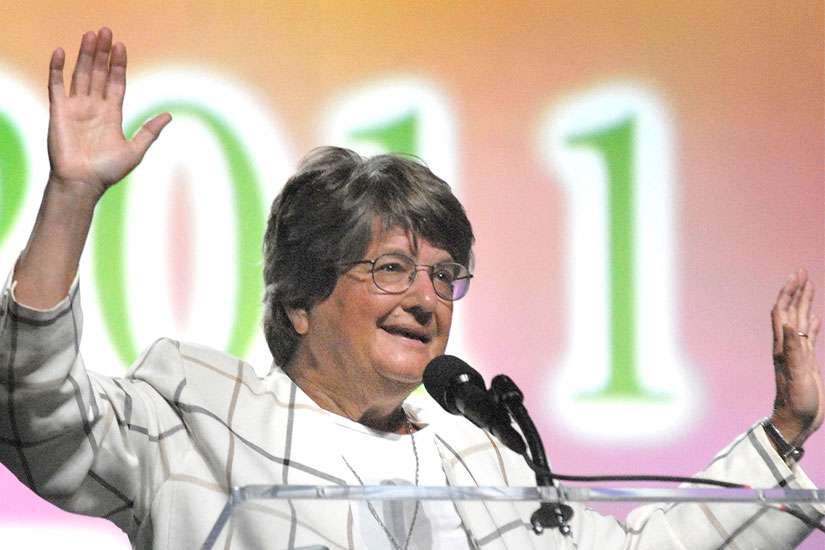"Torture and execution is always a profound evil, made even more abhorrent when sanctioned by the government in the name of justice when other means of protecting society are available," said the statement released March 31. "All who reverence the sanctity of human life, created in the image of God, must never remain silent when firing squads, lethal injections, electric chairs and other instruments of death are viewed as morally acceptable."
The statement urged governors, prosecutors, judges and "anyone entrusted with power to do all that they can to end a practice that diminishes our humanity and contributes to a culture of violence and retribution without restoration."
Co-ordinated by the group Faith in Public Life, the statement was signed by three retired Catholic bishops, two of whom served as president of the U.S. Conference of Catholic Bishops, by death penalty abolition advocate Sr. Helen Prejean, a Sister of St. Joseph, and another dozen or so women religious, hundreds of clergy and academics as well as other Christian leaders.
The statement offered prayers for those who have been killed and the families that mourn their loss, adding "we can never know your pain and anger."
It called for joint efforts for healing, restorative justice and "a system that punishes criminals without bringing more darkness and death into our world." It cited Pope Francis, who called capital punishment "cruel, inhumane and degrading," adding that it "does not bring justice to the victims, but only foments revenge." In a March 20 letter, the Pope urged worldwide abolition of capital punishment.
The signers asked public officials who are Christian "to join us in the solidarity of prayer this week as we meditate on the wounds of injustice that sicken our society." It said that capital punishment is, in many ways, "the rotten fruit of a culture that is sown with the seeds of poverty, inequality, racism and indifference to life."
It went on to say that it is "a shameful reality that the United States is one of the few developed nations in the world that still executes its citizens," citing recent developments including Utah's passage and signing by the governor of a bill that will bring back firing squads, Missouri's execution of a prisoner with severe brain damage and the pending execution of a Georgia woman, who has turned her time in prison to studying theology.
The statement noted several recent botched executions that "have pulled back the veil on this inhumane and ineffective practice," and pointed to polling that shows opposition to capital punishment is growing.
Tying the statement to Holy Week, it concluded: "In this sacred season of suffering, death and new life, we pray that our simple Christian witness is received with open hearts."


